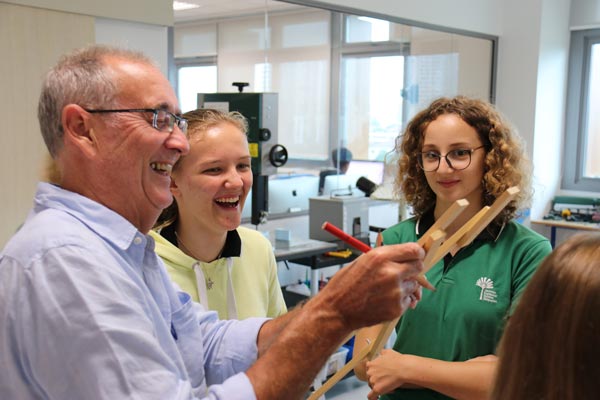
Innovative Education – Preparing our children for the future
Innovative Education – Preparing our children for the future
Innovation plays a massive role in both our social and work life in this technological world. As the world progresses, more technological innovation is needed to help us fulfil the demands of the world. Similar to most things, change has to start young. We need to prepare our children to develop an innovative mind for the future.
Education is the key to nurturing future leaders. As the world continues to evolve, the need for innovative education grows as our children prepare for the future. The importance of educating children for future jobs that do not exist yet in a possible future economy that may not come to pass gains traction with every passing day.
Are we doing enough to prepare our children for the 21st century?
 The Basic – Learning with Technology
The Basic – Learning with Technology
At the basic level, schools all over the world are making use of technology to teach the children of today. The rampant use of computers, tablets and online teaching is a telling sign that schools of today are adapting to technology. At the foundation levels, the schools incorporated innovative technology such as 3D imaging to interest young children in the realms of digital space and encourage these children to dream up new ideas. At the higher, tertiary levels, technology rules as undergraduates are invited to use technology and innovation to create projects that can change a small part of the world. Such inventive techniques used by the schools are a sign of excellent adaptation from schools.
 The Intermediate – Social-Digital Participation
The Intermediate – Social-Digital Participation
The intermediate level is the integration of technology in the digital social space. Social-digital technology refers to the harmonised systems of new technological tools, social media and the Internet to provide the constant in-depth online connection with information, people and artefacts. Education, in general, makes excellent use of the social-digital technology to give students of all ages an immersive social-digital participation. Take, for example, the use of 3D imaging in historical artefacts and ancient buildings. 3D imaging has enabled historians and archaeologists to provide detailed, close-up images of artefacts, murals, and even underground discoveries for students to learn and explore. Early exposure to such technology spurs young minds to think out of the box. For some of these children, the challenges of creating such detailed images may inspire them to think of innovations that can reduce the difficulties of such work.
 The Advance – Creating with Technology
The Advance – Creating with Technology
The advanced level is not restricted to older students. Most countries now offer coding as a fun and innovative way for children to learn more about creative technology. Coding is a sort of computer language that makes it possible for people to create software, websites, apps and even program robots. It is a valuable skill in future jobs and economy where technology plays a more significant role. Parents have increasingly recognised the benefits of sending their children to learn to code to prepare them for the future. Similarly, robotics has gained traction amongst schools that are well-equipped to help students develop for the future. Robotics is the new language for the future as the world gets ready to welcome robots into our midst to do manual work. Students who know robotics stand to gain an advantage in a future economy that potentially depends on robots to function cohesively.
With the world gearing up for the 21st century, children of today are pressured to start preparing for non-existent jobs and future economy. Parents are increasingly recognising the importance of social-digital technologies and exposing their children to social-digital participation to widen their knowledge for the 21st century. Some countries may be doing this faster than the others, but eventually, the world has to catch up to ensure that children of today will enter the “new world” fully equipped.
Find more articles relating education and the future in our Blog.







